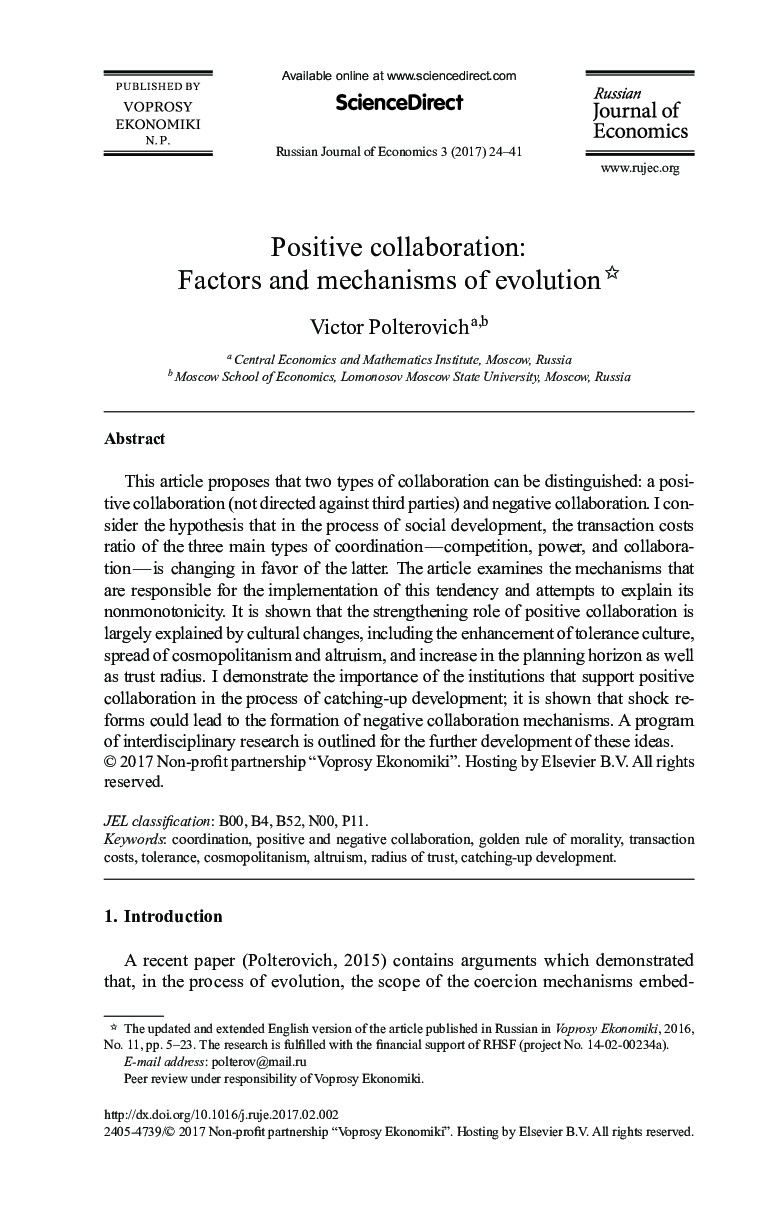| Article ID | Journal | Published Year | Pages | File Type |
|---|---|---|---|---|
| 7388601 | Russian Journal of Economics | 2017 | 18 Pages |
Abstract
This article proposes that two types of collaboration can be distinguished: a positive collaboration (not directed against third parties) and negative collaboration. I consider the hypothesis that in the process of social development, the transaction costs ratio of the three main types of coordination - competition, power, and collaboration - is changing in favor of the latter. The article examines the mechanisms that are responsible for the implementation of this tendency and attempts to explain its nonmonotonicity. It is shown that the strengthening role of positive collaboration is largely explained by cultural changes, including the enhancement of tolerance culture, spread of cosmopolitanism and altruism, and increase in the planning horizon as well as trust radius. I demonstrate the importance of the institutions that support positive collaboration in the process of catching-up development; it is shown that shock reforms could lead to the formation of negative collaboration mechanisms. A program of interdisciplinary research is outlined for the further development of these ideas.
Related Topics
Social Sciences and Humanities
Economics, Econometrics and Finance
Economics and Econometrics
Authors
Victor Polterovich,
